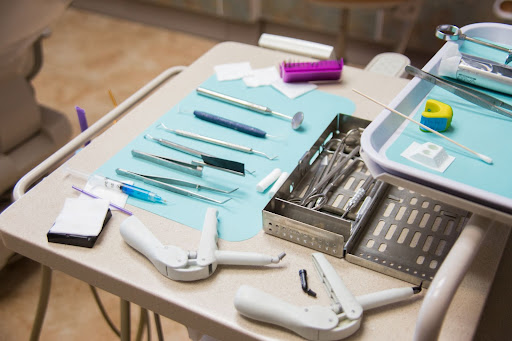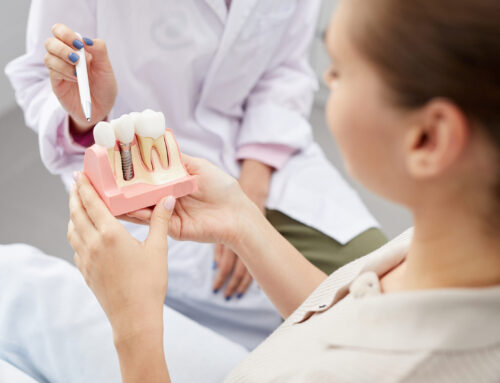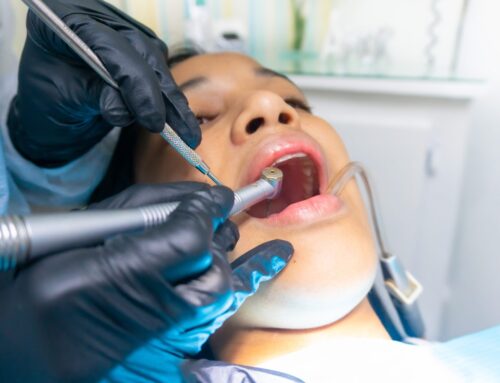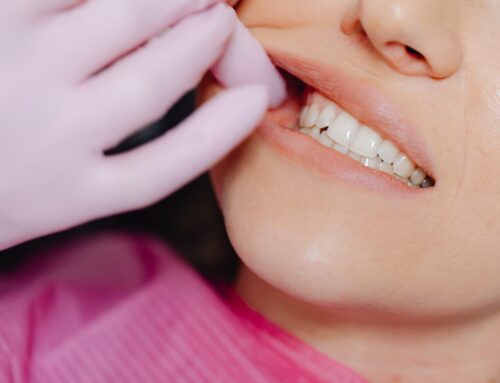Plaque, put simply, is the buildup on your teeth that you go to a dentist to have removed during routine dental cleanings, but what is plaque actually made of? Why do you have to go to the dentist to have it maintained? What is the best way to prevent plaque buildup? By understanding what plaque is and how it affects your teeth and gums, you can take proactive steps to maintain a healthy smile.
What is Plaque?
Definition and Composition: Plaque is a sticky, colorless film that forms on the surface of your teeth and gums. It’s a combination of bacteria, food particles, and saliva. Throughout the day, bacteria in your mouth interact with sugars and starches from the foods you eat, leading to plaque formation.
Formation Process: Plaque begins to form when bacteria in your mouth multiply and adhere to tooth surfaces, gum tissue, and other oral structures like implants or braces in some cases. These particles accumulate in areas difficult to reach during regular oral care, like brushing and flossing. Over time, if not properly removed, plaque can harden and turn into tartar, leading to more severe oral health issues, including gum disease.
The Dangers of Plaque Buildup
One of the primary dangers of plaque buildup is the development of tooth decay, commonly known as cavities. The bacteria in plaque produce acids that attack tooth enamel leading to the formation of cavities. Additionally, plaque accumulation can irritate and inflame gum tissue, leading to gingivitis. If left untreated, a mild case of gingivitis can progress to periodontitis, a more severe form of gum disease that can result in tooth loss.
Maintaining good oral health goes beyond just preserving your teeth and gums; it can impact your overall health. Research suggests a potential link between gum disease and conditions such as heart disease, diabetes, and even respiratory infections. The exact reasons behind these connections are still being studied, but it highlights the importance of addressing plaque buildup and gum disease as a part of your overall health.
Preventing and Managing Plaque and Buildup
Plaque prevention is directly affected by your oral hygiene practices. Brushing your teeth at least twice a day with a soft-bristled toothbrush and toothpaste is the easiest way to care for your teeth. Be sure to brush all surfaces thoroughly, including the gum line, and don’t forget to floss to remove plaque between your teeth.
Your diet can play a prominent role in plaque management. Limiting your sugar consumption can reduce the presence of sugar is a great way to reduce sugar for bacteria to feed on. Consume a balanced diet rich in fruits and vegetables, whole grains, and lean proteins, and also be sure to drink plenty of water to help wash away food debris and bacteria.
Even if you are completely on top of your oral hygiene, including brushing and flossing, attending regular cleanings and checkups is important. Regular checkups and cleaning at Gentle Dentistry allow our skilled team to assess your oral health, remove hardened plaque (tartar) that cannot be removed by simply brushing your teeth, and provide specific maintenance instructions for optimal oral health.
Conclusion
At Gentle Dentistry, we understand that each patient has unique needs when it comes to oral health. Dr. Evans and Dr. Goold personalize each treatment plan to address your specific concerns. Our experienced team will assist in evaluating the extent of plaque buildup and work alongside you and the dentist to create a comprehensive plan to restore and maintain your oral health. Schedule your appointment today!





Leave A Comment